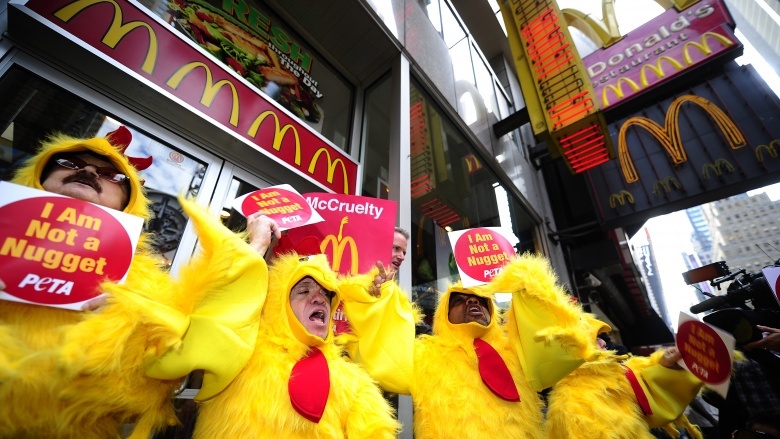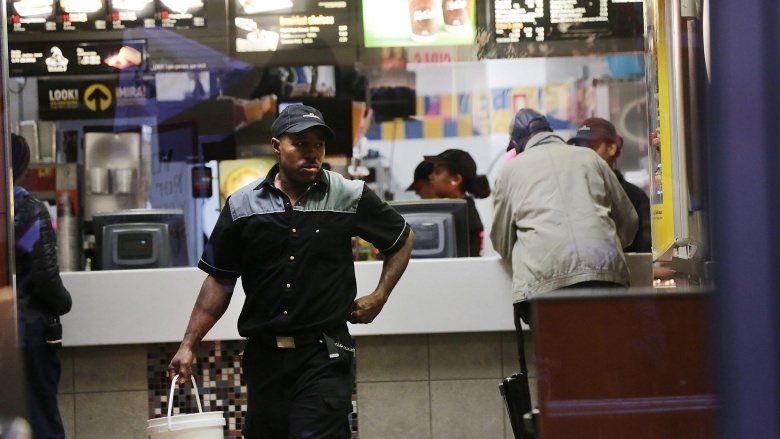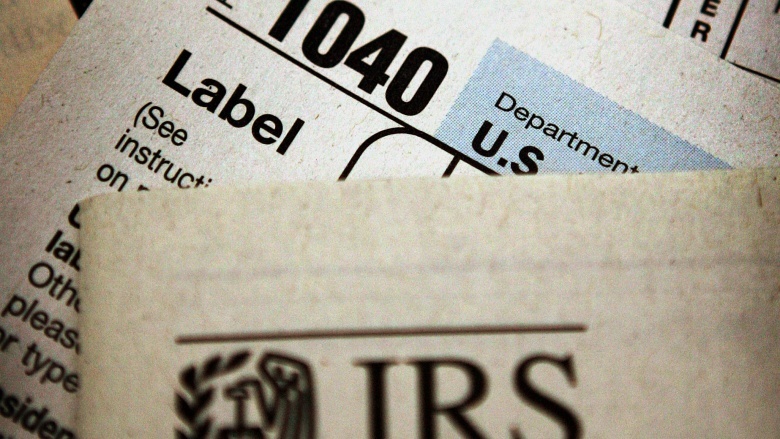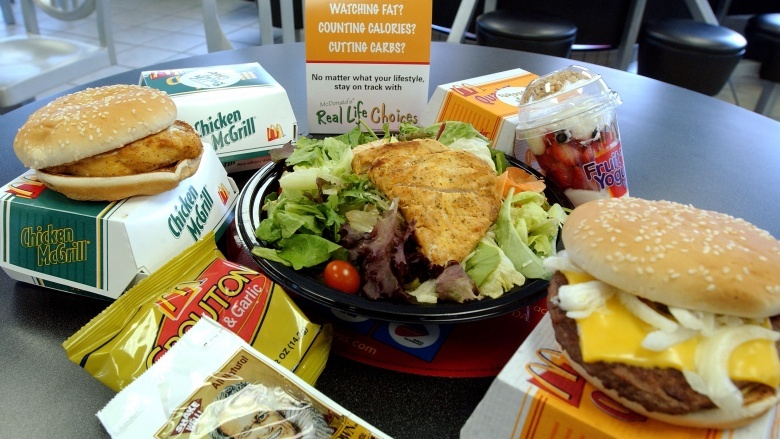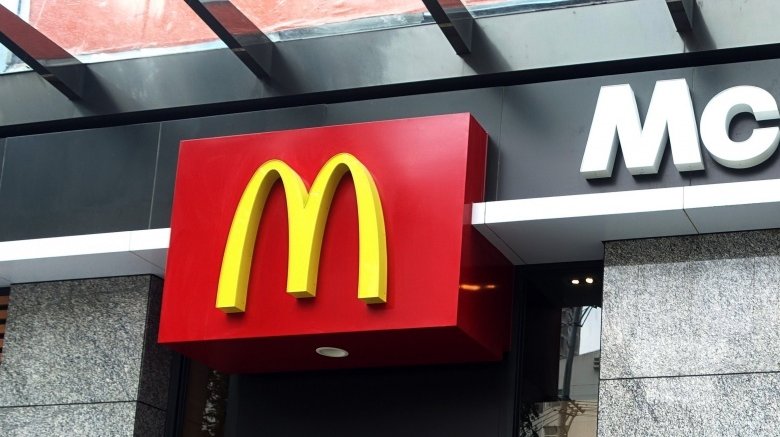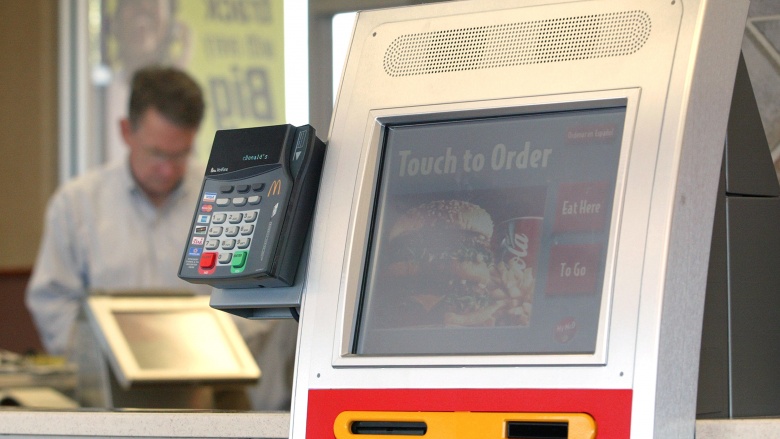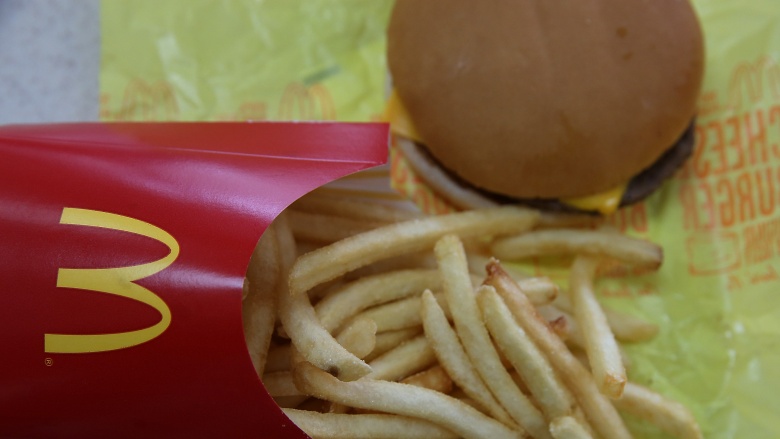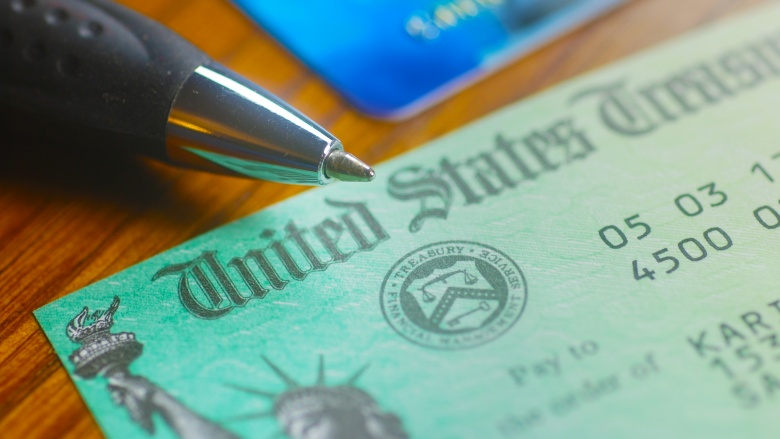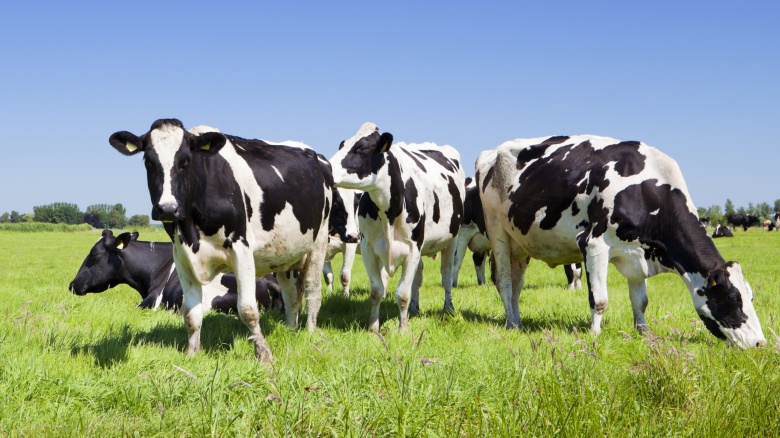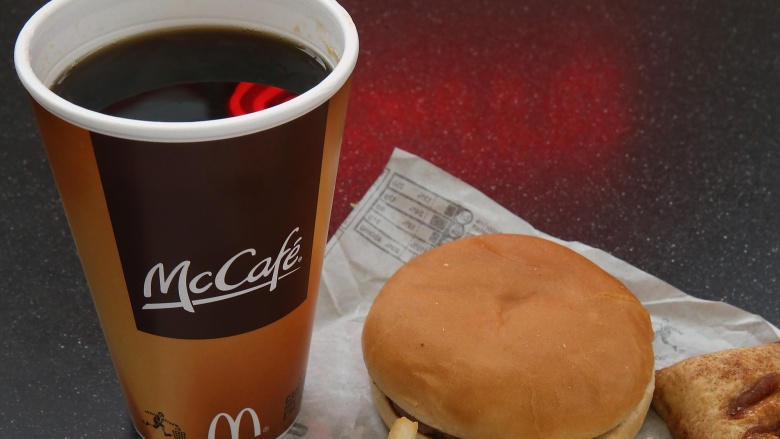Shady Secrets McDonald's Doesn't Want You To Know
For a company that specializes in food, folks, and fun, it's pretty amazing how shady McDonald's actually is. You might think it's no big deal to walk in, order a burger, get it in two minutes, and then leave. But apparently such a thing can only be accomplished by bending (or outright breaking) every rule in the book. Some genuine sociopathy from the people in charge helps too, as you're about to find out.
They once got (and still might get) their nuggets from lethally abused chickens
Obviously, to enjoy meat of any kind, some animal had to sacrifice its life. But it's always refreshing to know the animal lived peacefully and died in its slumber. But, according to summer 2015 footage released by activist group Mercy For Animals, McDonald's cares not one iota for that, working with farms that openly, brazenly, and possibly gleefully abuse their chickens before murdering them into almost-food. The farm that Mercy For Animals targeted, T&S Farm, was recorded beating chickens to death with spiked clubs, with the occasional curb-stomping for variety's sake. The workers knew full well what they were doing, with one outright asking the cameraman, "you don't work for PETA, do you?" like a kid caught with his hand in an extremely bloody cookie jar.
Since the video, McDonald's has disavowed the chicken-killing farm, giving the usual PR responses to assuage as many disgusted customers as humanly possible. But not even the slickest press release can answer three burning questions: how long has this happened, why did it take this video for a major company to realize bludgeoning food to death for fun is evil, and since it's been a year already, are they secretly working with that farm again?
They won't pay workers overtime for working major holidays
For a long time, McDonald's understood what Thanksgiving and Christmas meant, and so they allowed their workers to enjoy both the holiday and all the turkey they can stomach. But money cares not for our arcane traditions and emotions, and so in 2012 McDonald's started opening on the holidays. This was always a thing company-owned stores did, but now they were "urging" (or, really, forcing) franchisees to do the same. Apparently, doing so rakes in thousands per restaurant, which is all that matters anymore. And yes, if you've hit McDonald's either of these days, you're officially part of the problem. Commence feeling bad...now.
That's pretty sucky of them, but at least franchise owners can pay holiday overtime. Workers at the company-owned stores, unfortunately, are fresh out of luck—McD's flat-out refuses to pay them extra for working on a day that, as far as many are concerned, should only be worked by those who deal in emergencies. (No, Big Mac withdrawal doesn't count.) They hide under the excuse that, because workers volunteer to work those days, they're not entitled to overtime pay. Because when you're dirt-broke, struggling to raise a family, and living from minimum-wage paycheck to minimum-wage paycheck, you definitely have the option of not volunteering to get paid for something.
They're tax cheats
Like so many other thieving rich folk, McDonald's has apparently devolved into filthy, leeching tax cheats. According to the wonderfully titled Golden Dodges: How McDonald's Avoids Paying Its Fair Share of Tax, between 2009 and 2013, McDonald's avoided paying over $1.8 billion in taxes. The company used a series of barely legal (and something not even that) loopholes and cleverly shifting profits from whatever country they earned them in, to low-tax havens in countries they didn't. This seems to especially be true overseas, where McDonald's is looking at charges that they stole a billion euros ($1.1 billion American) from the European Union by sending their profits through Luxembourg, a country barely big enough to physically store all that money. Australia claims McDonald's did the same thing there, sending their profits through Singapore and magically pocketing about a half billion in would-be taxes.
Even Brazil has a McBone to pick with the company, claiming they regularly bribe tax officials for minor favors like, oh, ignoring all laws so suddenly the company pays fewer taxes with no issues. But hey, they might have to charge ten extra cents per box of nuggets if they can't deprive the world's schools and hospitals of much-needed funding, and we can't have that.
Their salads and oatmeal are unhealthier than their burgers
For some reason, enough people hit McDonald's with their health in mind for the company to make mad bank selling food meant to trim your waistline on the cheap. That sounds great, except that it's wrong in every conceivable way. The chicken kale Caesar salad, for example, clocks in at a cool 730 calories, 53 grams of fat, and 1,400 milligrams of sodium—numbers that absolutely should not be attached to a bunch of leaves. For comparison's sake, a Double Big Mac has 680 calories and 1,340 mgs of sodium, meaning they're touting a healthy salad that's unhealthier than their unhealthiest hunk of cow. But don't worry, you can skip the dressing, eat a plain dry salad, and save 200 calories, so now it's only unhealthier than a single Big Mac. Small victories are still victories.
For the breakfast crowd, McDonald's oatmeal has got you covered, and hornswoggled. Thanks to "fun" additives like cream, "natural flavor," and sugar, the McOatmeal clocks in at 290 calories, with 32 sugar grams. You would literally do better with candy for breakfast—a regular-size Snickers bar, for example, only has 280 calories and 30 grams of sugar. Plus, Snickers doesn't pretend to be anything it's not. You can trust a Snickers bar, unlike anything Ronald McDonald touts as good for your abs.
They'll sue anyone with the gall to run a business with 'Mc' or 'Mac' in its name
Once you get greedy enough, any threat to even a dime of your profit must be fought tooth-and-nail, even if it means losing more money to lawyers than you ever would've to the "competition." It's the principle that counts. In this case, we have McDonald's going after literally any small business that uses "Mc" or "Mac," because that's their thing, and they don't customers getting confused by seeing it anywhere else. The customer is apparently both always right, and the dumbest people on the planet.
Sometimes, they sue fast food joints, like McJoy in the Philippines or Mac Dooglas in Colombia (which was destroying McDonald's bottom line with three whole restaurants in a tiny village no one outside the tiny village had even heard of.) But other times they just get petty, like when they sued a coffee shop called McCoffee—which had that name for 17 years—until they finally agreed to change their name and stop leeching tens of dollars from poor little McDonald's. Though probably the stupidest case was when they went after a hot dog stand called McAllan. Like, a single hot dog stand, which is a product McDonald's doesn't even serve. That's like Budweiser suing some kid's lemonade stand. They lost that case, after the judge returned with a verdict of "really?" But usually, McDonald's wins hands-down, valiantly beating back the evil little guy with the almighty power of Unlimited Wealth.
McDonald's would rather use self-serve kiosks than pay employees a higher wage
Does McDonald's food actually taste good? Who cares? It's cheap! One of the primary ways that McDonald's pulls that off is by paying the majority of its employees the least that it's legally allowed to do so. In most places, that's right at, or close to, the federal standard of just $7.25 an hour, an amount economic experts prefer to as "a complete tease."
However, many cities and states have recently opted to raise their local minimum wages, in the hopes that workers can finally afford more than a closet inside a studio apartment. In Arizona and Colorado, it's set to rise to $12 an hour, Washington's will soon be $13.50 per hour, and Los Angeles workers will get a minimum of 15 bucks an hour. These states that have the audacity to pay workers a living wage could severely cut into McDonald's bottom line, so the company has responded by threatening to replace its employees with robots: specifically, self-service kiosks. Robots work for free! At least, until the Uprising.
Here's how it works: Customers come into a McDonald's, enter their order on a touchscreen, the company CEO buys another 500-foot yacht and vacations in Bermuda. RoboClerk then sends the order to the kitchen, where an actual human (for now) puts the food together. Yes, they do have to pay somebody for that job (for now), but it does mean McDonald's no longer has to staff a person at the counter—a great savings to the company, even at minimum wage.
They'll roll these kiosks out nationally and internationally, if they prove to be efficient and cost-effective in test runs. What a golden time the future will be, when a screen instead of a human will ask "do you want fries with that?"
McDonald's burgers don't decompose
Burgers taste best when they're hot and freshly prepared, but if you order those things at Mickey D's and for some reason can't get to them for a while, like say, a few months, don't worry about it, they're still "fine." Or at least, they look fine. Eerily, McDonald's small hamburgers don't seem to rot at a regular pace.
In 2008, a health blogger named Karen Hanrahan posted a photo of a McDonald's hamburger ... that she'd bought in 1996 and saved, just to see what would happen. What happened is that, after twelve years, it looked the same as it looked in 1996, and it also looked the same as a brand-new McDonald's hamburger.
Hanrahan argued that the immortality of the burger must be due to the vast array of preservatives in the burger, which rendered it "chemical food" that lacked any sort of natural nutrition. But according to food scientist J. Kenji Lopez-Alt, writing for Serious Eats, regular McDonald's hamburgers don't decompose normally because they don't — and can't — dry out. A typical McBurger is a non-perishable food on the level of dried beans, saltines, and other pantry staples. Paranoid of the apocalypse? Building a fallout shelter? Install a McDonald's. Wasteland be damned, you'll never starve.
How is this possible, though? Simple — there's nothing to dry. A small McDonald's hamburger is thin but flat, making for a high surface area-to-volume ratio. Then, it's cooked until well-done on a hot grill, sucking out all the tasty, delicious, mortal moisture. No moisture means no bacteria—decaying agents—can propagate. Ever. And thus, the food lasts forever. Basically, you're eating a mummy.
The company receives hundreds of millions in government cheese
The 2015 launch of all-day breakfast at McDonald's led to two things: the meaningless of time, with regards to breakfast being a morning thing, and increased sales at McDonald's nationwide. During the last quarter of that year, the company raked in a whopping $6.22 billion, attributable largely to the novelty of being served an English muffin with eggs on it just in time for Jeopardy!
That being said, it's much easier for a company to rake in the profits if they're getting free money from the government so it can play with its menu and experiment with late-evening hash browns. And they do — between 2003 and 2013, McDonald's got subsidies from 42 state and city governments totaling nearly $4 million. McDonald's even got a piece of the big federal "bailout" package in 2008 and 2009: a $203 million piece to be exact. McDonald's: Too big to fail, and as long as government fatcats get literally fat off of midnight snack McGriddles, it never, ever will.
There's a whole herd of cattle in that one burger
McDonald's store signs claim "billions and billions served," which means the number of burgers sold as much as it does the customers who have eaten those burgers. To serve that many burgers, McDonald's has to slaughter and prepare an incredibly high volume of cattle in incredibly large and sophisticated meat-processing facilities. McDonald's calls this burger creation the "blending process," and it somehow gets more appetizing when you learn the step-by-step process.
In a nutshell, just so, so many cows are slaughtered. Their meat gets mixed together, and then formed into patties, but it's done so haphazardly that a single beef patty may contain the meat of up to 100 different cows. A Bessie is a Bessie is a Bessie, apparently. But hey, even if you eat nothing but McDonald's burgers, you're still eating a wide variety of food from all over the globe.
The truth behind the hot coffee lawsuit
It's the case most associated with "frivolous lawsuits" or an overly litigious society: the woman who successfully sued McDonald's after she went and spilled a cup of their coffee on herself. The reality of the case, however, is quite complex, and, frankly, horrifying.
In 1992, 79-year-old Stella Liebeck went through a McDonald's drive-through and pulled up on the lid to put in some cream—which, you know, cools it down—and wound up dumping it all over her sweatpants-covered lower half. But coffee, especially McDonald's coffee, is hot: Even with clothes on, the brown stuff caused third-degree burns on over 16 percent of Liebeck's body, including her thighs and genitals, burning the skin away completely in some places. During her eight-day hospitalization Liebeck underwent painful skin graft surgery.
Liebeck sued McDonald's, initially wanting just $20,000 to cover medical costs and lost income during her recovery. That's not so bad, but as we've made perfectly clear thus far, McDonald's is both cheap and petty. The company offered $800 (roughly 800 cups of McDonald's coffee), which was so insulting, Liebeck's lawyers took them to court. Ultimately, she was awarded about $3 million by a jury who did find her partially responsible, because she pulled up on the lid too hard, but McDonald's mostly responsible, for serving coffee way too hot for human consumption and/or handling.
Among the information that came out in the trial: McDonald's required its restaurants to serve coffee at around 185 degrees, which is way hotter than what Mr. Coffee produces. In fact, a thermodynamics expert testified a liquid that temperature can burn through human skin in as little as two seconds. Even more shocking: In the decade before the Liebeck case, McDonald's had received more than 700 complaints from people who had burned themselves on the coffee —and yet the company still refused to lower the temperature. They could've lost no money, then could've lost just 20 K, then lost 3 million, all because they were stubborn. Food, folks, and fantastic stupidity.
